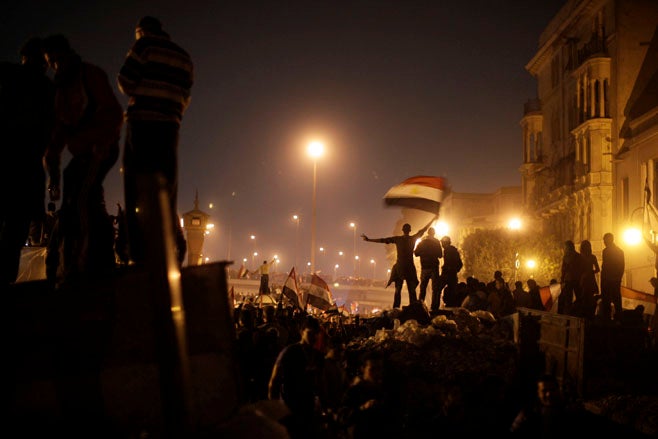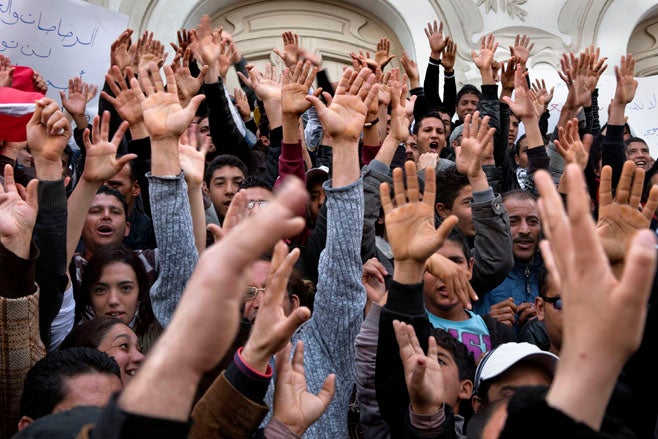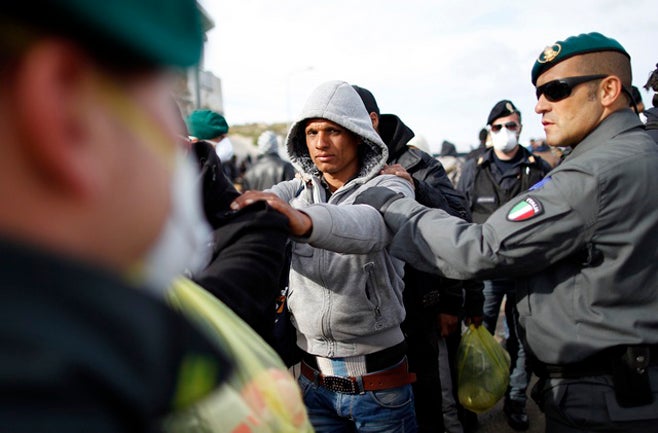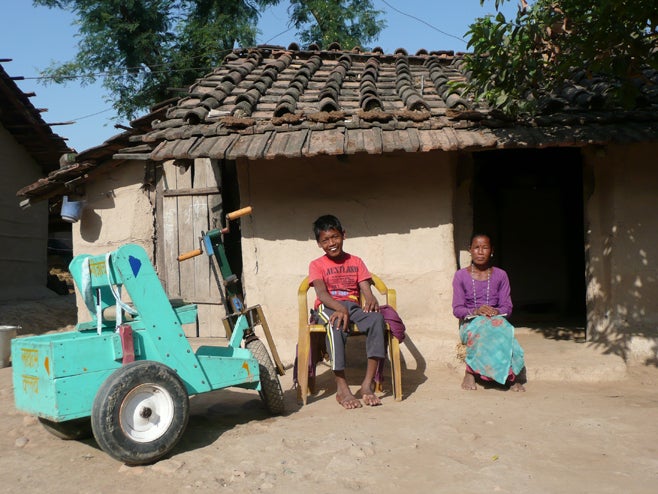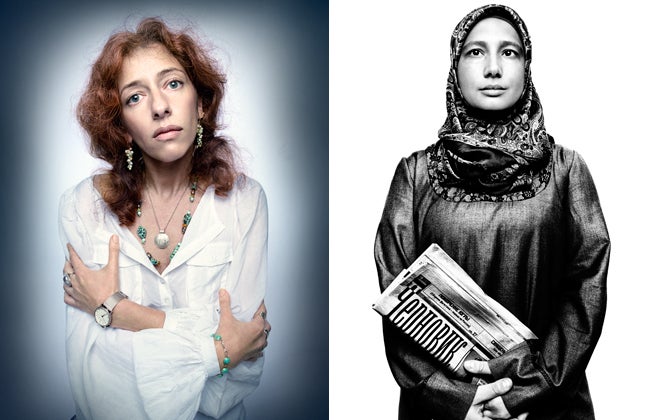Brazil is among the most influential democracies in regional and global affairs, yet it continues to confront very serious human rights challenges at home. Faced with high levels of violent crime, some Brazilian police units engage in abusive practices with impunity, instead of pursuing sound policing practices. Justice officials who seek to hold police officers accountable for unlawful practices face threats of violence. In August 2011 Judge Patricia Acioli was gunned down outside her home in the state of Rio de Janeiro, apparently in retaliation for ordering the detention of police officers suspected of murder.
Detention centers in various states are severely overcrowded, lengthy pre-trial detention is the norm, and torture continues to be a serious problem. Forced labor persists in some states despite federal efforts to eradicate it.
Public Security and Police Conduct
Widespread violence perpetrated by criminal gangs and abusive police plague many Brazilian cities. Violence especially impacts low-income communities. In Rio de Janeiro, for example, drug gangs that routinely engage in violent crime and extortion control hundreds of shantytowns. In November 2010, drug gangs unleashed a wave of attacks in the streets of Rio, setting vehicles ablaze and staging mass robberies, leading to massive deployment of police and armed forces to the Complexo do Alemão community.
Police abuse, including extrajudicial execution, is also a chronic problem. According to official data, police were responsible for 372 killings in the state of Rio de Janeiro and 252 killings in the state of São Paulo in the first six months of 2011. Police often claim these are "resistance" killings that occur in confrontations with criminals. While many police killings undoubtedly result from legitimate use of force by police officers, many others do not, a fact documented by Human Rights Watch and other groups and recognized by Brazilian criminal justice officials.
Reform efforts have fallen short because state criminal justice systems rely almost entirely on police investigators to resolve these cases, leaving the police largely to regulate themselves. In 2010 São Paulo’s attorney general took an important step to address the problem of police violence by establishing that all cases involving alleged police abuse be investigated by a special unit of prosecutors.
The state of Rio de Janeiro launched the System of Goals and Results Tracking in 2009, whereby police are awarded financial compensation for meeting crime reduction targets. These targets were redesigned in January 2011 to include police homicides. In addition, almost 20 Pacifying Police Units (UPP) have been installed in Rio since 2008, in order to establish a more effective police presence at the community level. However, the state has not yet taken adequate steps to ensure that police who commit abuses are held accountable.
Many Rio communities formerly controlled by drug dealers are now in the hands of militias composed of police, jail guards, firefighters, and others who coerce residents to pay for illegal utility hookups, transportation, and security. These militias have been implicated in execution-style killings, far-reaching extortion schemes, and the kidnapping and torture of a group of journalists investigating their activities. In October 2011 Rio Congressman Marcelo Freixo announced his decision to leave Brazil temporarily due to escalating death threats. He presided over a parliamentary commission of inquiry that investigated militia activity in Rio in 2008 and has been outspoken in denouncing links between certain militia groups and local elected officials.
Judges and magistrates who take on cases of violence by illegal militia face threats of violence. In August 2011 Judge Patricia Lourival Acioli was gunned down outside her home in the city of São Gonçalo, apparently in retaliation for ordering the detention of police officers suspected of murder. She had received four death threats prior to her murder. The head of Rio’s military police subsequently resigned and several São Gonçalo police officers were indicted. Nevertheless, the Brazilian Association of Judges has reported that the number of judicial workers requesting government protection increased 400 percent since Acioli’s killing.
Detention Conditions, Torture, and Ill-Treatment of Detainees
Many Brazilian prisons and jails are violent and severely overcrowded. According to the Ministry of Justice’s Penitentiary Information Integrated System (INFOPEN), Brazil’s incarceration rate tripled over the last 15 years and the prison population now exceeds half a million people. Delays within the justice system contribute to the overcrowding: almost half of all inmates are in pre-trial detention. On July 4, 2011, Congress passed a law prohibiting pre-trial detention for crimes punishable by less than four years in jail.
Torture is a chronic problem throughout Brazil’s detention centers and police stations. A 2010 report by the Pastoral Prison Commission documented cases of torture in 20 out of 26 Brazilian states. HIV and tuberculosis prevalence rates in Brazilian prisons are far higher than rates in the general population; inhumane conditions facilitate the spread of disease, and prisoners’ access to medical care remains inadequate. In early September 2011, hundreds of detainees in Maranhão state rioted against prolonged pre-trial detention, unsanitary facilities, limited access to drinking water, and sexual abuse by prison wards. Rival factions killed at least 18 prisoners.
On September 30, 2011, President Dilma Roussef proposed legislation to create a national mechanism—the National System to Prevent and Combat Torture—to monitor detention centers throughout the country and investigate allegations of torture and ill-treatment.
Women’s Health and Reproductive Rights
Although Brazil has significantly lowered its maternal mortality rate over the last two decades, national statistics mask severe disparities based on race, economic status, region, and urban or rural settings. In August 2011 the United Nations Committee on the Elimination of All Forms of Discrimination Against Women held that in the case of Alyne da Silva Pimental, who died after being denied timely care at a public health facility, Brazil failed to fulfill its obligation to guarantee timely, nondiscriminatory, and appropriate maternal health services.
The Brazilian Criminal Code criminalizes abortion except in cases of rape or when necessary to save a woman’s life. Women and girls who undertake the procedure voluntarily may be sentenced to up to three years in jail, and their doctors to up to ten years. Raids on family planning clinics and aggressive prosecution of abortion further limit women’s and girls’ access to reproductive health services. There are currently more than 40 draft laws before the House of Representatives proposing to further restrict access to contraception or punish abortion more harshly. The Health Ministry estimates that more than one million illegal abortions are performed every year and hundreds of women and girls annually seek hospital attention due to complications arising from illicit abortions.
Sexual Orientation and Gender Identity
In May 2011 the Supreme Court unanimously decided to legalize same-sex civil unions in light of the constitutional guarantee of non-discrimination. Same-sex spouses now have the same legal rights as their heterosexual counterparts: broader health insurance coverage, hospital visits, pension plans, and inheritance rights. The following month a trial court in the state of São Paulo recognized the first same-sex civil marriage in Brazil. The Superior Justice Court followed suit in October, setting an important precedent by interpreting the Brazilian Civil Code as allowing same-sex marriages.
Forced Labor
The federal government has taken important steps to eradicate forced labor since 1995, including creating mobile investigation units to examine conditions in rural areas and publishing a “black list” of employers found to have used forced labor. Official data suggests that more than 39,000 workers have been freed since 1995. However, the Pastoral Land Commission reported that more than 4,000 workers were subject to forced labor in 2010. Criminal accountability for offending employers remains relatively rare.
Rural Violence
Indigenous leaders and rural activists continue to face threats and violence. According to the Pastoral Land Commission, 34 people were killed and 55 were victims of attempted murder throughout the country in 2010. Over 1,900 rural activists have received death threats over the past decade; of these 42 have been killed. The south of Pará state has long been a focal point of rural violence, but frontier areas where illegal loggers and ranchers operate in Maranhão, Mato Grosso, and Rondônia states are becoming dangerous for environmentalists and government officials alike.
Confronting Past Abuses
Brazil has granted over US$1 billion in financial compensation to more than 12,000 victims of abuses committed by state agents during the military dictatorship from 1964 to 1985. On October 26, 2011, Congress approved a law creating a truth commission charged with “examining and clarifying” human rights abuses committed between 1946 and 1988.
However, there has been little progress in prosecuting those responsible for atrocities. A 1979 amnesty law has thus far been interpreted to bar prosecutions of state agents, an interpretation that the Supreme Court reaffirmed in April 2010.
Freedom of Expression and Access to Information
In July 2009 the Federal District Court of Justice issued an injunction prohibiting the newspaper O Estado de São Paulo from publishing stories containing information on the "Operação Faktor" police investigation involving Fernando Sarney, son of Senate President José Sarney. Despite strenuous criticism from national and international press freedom organizations, the Supreme Court upheld the ruling in December 2009.
On June 15, 2011, the Supreme Court unanimously held that peaceful demonstrations calling for marijuana to be legalized are protected under the constitutional guarantees of freedom of expression and assembly. Certain state judges have prohibited such demonstrations on the grounds that they encouraged or glorified drug use.
In September 2011 the host of a radio show on Radio Frontera, Vanderlei Canuto Leandro, was shot by unidentified assailants in the city of Tabatinga, Amazonas state, purportedly in retaliation of his investigations of corruption by local government officials. It was the fifth such killing of a journalist in Brazil in 2011, according to the Inter-American system’s special rapporteur for freedom of expression.
Key International Actors
The Inter-American system has played an important role in addressing key human rights issues. In November 2010 the Inter-American Court of Human Rights ruled that Brazil’s amnesty law cannot prevent the investigation and prosecution of serious human rights violations and crimes against humanity committed by state agents during the military regime. In resolutions in February and September 2011 the court also instructed the state of Espírito Santo to take steps to address alleged abuses against juveniles detained at the Unidade de Internação Socioeducativa (UNIS) detention center.
In April 2011 the Inter-American Commission on Human Rights issued precautionary measures for Brazil due to an alleged failure to consult with indigenous groups prior to beginning the construction of the Belo Monte hydroelectric dam, slated to be the world’s third largest. The Rousseff administration publicly rejected the commission’s findings and characterized them as “premature and unjustified.” On July 29, 2011, the commission modified its precautionary measures on the basis of information provided by the Brazilian government. A federal judge in the state of Paráenjoined work at the Xingu River basin in September 2011 in order to protect local fish stocks deemed essential to the livelihood of indigenous communities. The consortium building the dam appealed the decision in November.
In May 2011 the UN special rapporteur on contemporary forms of slavery encouraged Brazil to strengthen efforts to close loopholes perpetuating the practice of slavery, including forced labor in the country's rural areas.
Brazil has emerged as an important and influential voice in debates over international responses to human rights issues at the UN. At the UN Human Rights Council during the July 2010 to June 2011 period, Brazil consistently voted in support of resolutionsaddressing country situations, including on Sudan, North Korea, Iran, Belarus, and Syria. However, at the UN Security Council in October 2011 it refused to support a resolution condemning state-sponsored violence in Syria.
